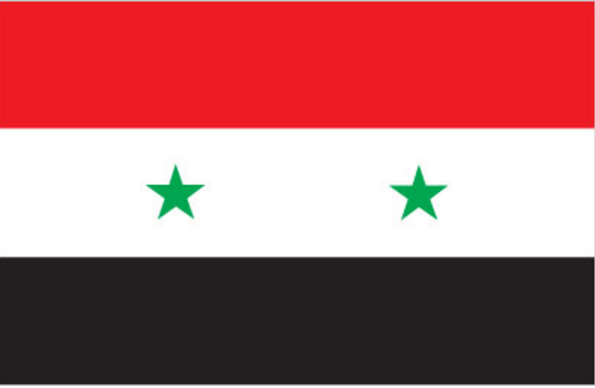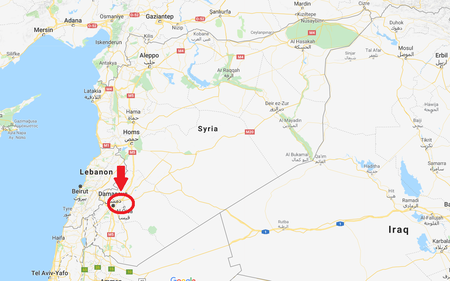Local Physician and Native of Douma, Syria, Talks About Life Before, During, and After the City Was Besieged
“I don’t see anything changing in the future. I don’t even see that happening in my lifetime.”


We recently discussed the latest chemical attacks in Douma, Syria, on Detroit Today, and we heard from a couple of listeners who are native to the Ghouta region.
Those listeners say they still have friends and family living in Douma, riding out a civil war in the most desperate of circumstances, with little to no options other than to wait, hope, and pray.
Mouhammad was one of the callers. He’s a physician who moved to southeast Michigan after doing his residency in the American south. Mouhammad learned about the strong Syrian and Arab-American population in southeast Michigan, and was drawn to move here after completing his residency. He says he would love to return to his homeland some day, but that isn’t an option for him.
Many of Mouhammad’s friends and family members still live in Syria and in the besieged city of Douma.
Detroit Today senior producer Laura Weber-Davis asked Mouhammad to come in and share his personal story of growing up in Douma, and of watching the early stages of a civil war unfold after the Arab Spring.
For the sake of his safety, and that of his family, we agreed not to use Mouhammad’s last name.
Mouhammad says he talks with his friends and colleagues still living in Douma, when there is an ability to do so. Much of Syria’s infrastructure is damaged or permanently cut off from people trying to make phone calls or send communication outside of Syria. He says his friends describe a hellish landscape and untenable living conditions, with constant shelling and bombardment from the Syrian regime.
Here’s Mouhammad on a brief window of time his friends describe to him when the shelling stopped during military negotiations:
“The bombing stopped for maybe 12 hours, maybe 24 hours. When I talked to my friends, they felt that 12 or 24 hours was heaven. They were like ‘Wow, life is really good. We could actually enjoy life.’ And in that miserable situation, when they have been besieged for seven years — and there was no medical resources, there was no food, there was no life — and there was shelling still, but a break of 12 hours from out of the three hellish days, was heaven. They felt they could actually step out of the underground shelters and just see the sun, see the sky for a few minutes.”
On the difficulty of seeing horrific images on the internet of pain and suffering in Douma:
“I’ve reached a point where I couldn’t watch anymore, because it was affecting my daily life, it was affecting my functionality, it was going to affect the way I treat my patients. I would sometimes just take a break from work. It just wasn’t doable anymore, so I would take a break from watching the videos and hearing the stories. But you can’t; you can’t not watch for a long time. You talk to your family, you talk to your friends, [it’s on] my Facebook page all the time. It’s on and off. Sometimes I do feel a little disconnected [so] I intentionally do watch. I want to be connected all the time. I want to feel the pain, I want to share the pain, if you will, with my friends and family.”
On whether he could see himself returning to a normal life in Syria in the future:
“Unfortunately, I don’t see that coming at all. Not in my lifetime. If you look at the entire region you look at how Iran and Hezbollah are expanding. A few years ago, Iraq was– although there was a dictator, there’s no question about that – but look at it now. It’s mainly controlled by the Shiites and by Iran. Lebanon is controlled by Iran, in a way, and now Syria. They’re expanding. Iran is expanding with the support of Russia. I don’t, unfortunately– with the lack of how the international community is reacting to Syrian people, I don’t see anything changing in the future. I don’t even see that happening in my lifetime.”
To hear more from Mouhammad — about his arrest by Syrian police for a casual comment he made about the government, about what Douma was like before the fighting and shelling began, and about how the fighting escalated into a full-on war — click on the audio player above.
